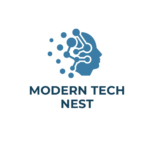Key Takeaways
- Bridging Technology and Business: A technology management degree equips graduates with the skills needed to effectively integrate technology within business strategies, driving innovation and efficiency.
- Diverse Curriculum: The program covers essential courses like project management, information systems, data analytics, and organizational behavior, providing a comprehensive toolset for managing technology in various industries.
- Growing Job Market: With an increasing emphasis on digital transformation, the demand for technology management professionals is on the rise, making this degree highly relevant in today’s job market.
- Career Versatility: Graduates have diverse career opportunities across sectors like healthcare, finance, and IT, taking on roles such as IT Manager, Technology Consultant, and Chief Technology Officer.
- Essential Skills Development: Students acquire both technical skills (e.g., project management, cybersecurity) and soft skills (e.g., communication, problem-solving), preparing them for successful leadership roles.
- Specialization Opportunities: Electives like Cybersecurity Management and Innovation Management allow students to tailor their education, aligning it with specific interests and career aspirations.
In today’s fast-paced digital landscape, a technology management degree stands out as a vital asset for aspiring leaders. This degree equips individuals with the skills to bridge the gap between technology and business, ensuring organizations can harness innovation effectively. As industries evolve, the demand for professionals who can manage technological advancements continues to rise.
Students pursuing this degree gain a comprehensive understanding of both technical and managerial principles. They learn to navigate complex systems, drive strategic initiatives, and foster collaboration among teams. With a focus on real-world applications, graduates are well-prepared to tackle the challenges of modern enterprises and lead projects that enhance productivity and efficiency.
Technology Management Degree
A technology management degree combines technical knowledge with managerial skills, preparing graduates to lead in a rapidly evolving digital landscape. This program empowers students to effectively manage technology’s role within various business environments.
Definition And Scope
A technology management degree focuses on integrating technology into business strategy. The curriculum typically includes subjects such as project management, information systems, data analytics, and organizational behavior. Students learn to assess emerging technologies, manage digital transformations, and optimize technology use across multiple sectors, including healthcare, finance, and manufacturing.
Importance In Today’s Job Market
 The demand for technology management graduates continues to rise. With 82% of companies prioritizing digital transformation, professionals with this degree play a vital role in strategy development and execution. Additionally, a technology management degree equips graduates with essential skills to address workforce challenges, enabling organizations to remain competitive.
The demand for technology management graduates continues to rise. With 82% of companies prioritizing digital transformation, professionals with this degree play a vital role in strategy development and execution. Additionally, a technology management degree equips graduates with essential skills to address workforce challenges, enabling organizations to remain competitive.
As industries face increased technological complexity, the need for well-trained managers becomes indispensable, solidifying the degree’s relevance and value in the current job market.
Curriculum Structure![]()
The curriculum structure of a technology management degree encompasses a range of core courses and electives designed to equip students with essential skills for managing technology in business environments. This comprehensive program ensures that graduates can effectively lead in the digital age.
Core Courses
Core courses form the backbone of the technology management curriculum, providing foundational knowledge crucial for future leaders. Students typically engage in subjects such as:
- Project Management: Students learn planning, execution, and monitoring techniques for successful project delivery.
- Information Systems: This course covers the design and implementation of information systems that support organizational objectives.
- Data Analytics: Students develop skills to analyze data, inform decision-making, and improve organizational performance.
- Organizational Behavior: This course explores the impact of technology on workplace dynamics and employee performance.
- Technology Strategy: Students examine frameworks for aligning technology initiatives with business goals and assessing competitive advantages.
Electives And Specializations
Electives and specializations allow students to tailor their education according to specific interests and career goals. Popular options include:
- Cybersecurity Management: This specialization focuses on protecting digital assets and managing organizational security risks.
- Supply Chain Management: Students explore technology’s role in optimizing supply chain operations and enhancing efficiency.
- Innovation Management: This course emphasizes fostering innovation and guiding the development of new products and services.
- Artificial Intelligence Applications: Students learn to leverage AI technologies for business improvement and strategic advantage.
- Digital Marketing: This elective covers the integration of technology in marketing strategies to reach broader audiences effectively.
By combining core courses with targeted electives, the technology management degree offers a versatile educational experience that prepares graduates for various leadership roles in the technology sector.
Career Opportunities
A technology management degree opens up a diverse range of career opportunities across various industries. Graduates can position themselves at the forefront of technology-driven organizations, leading initiatives that enhance business performance.
Industries That Value Technology Management
- Healthcare: Organizations prioritize technology for patient care improvements, operational efficiency, and data management.
- Finance: Companies seek technology leaders to implement digital solutions, ensure cybersecurity, and manage financial systems.
- Manufacturing: Firms focus on automation, supply chain optimization, and technological integration within production processes.
- Information Technology: Businesses require professionals to oversee software development, IT infrastructure, and project management.
- Retail: Retailers implement technology for enhanced customer experiences and data analytics to drive sales strategies.
- Telecommunications: Companies invest in technology management experts to streamline network operations and innovate services.
- IT Manager: Oversees IT projects, manages technical teams, and ensures alignment with business goals.
- Technology Consultant: Advises organizations on adopting technologies, optimizing processes, and improving efficiency.
- Project Manager: Leads technology initiatives, coordinating teams and resources to ensure successful project delivery.
- Data Analyst: Utilizes data analytics to inform business strategies and enhance decision-making processes.
- Product Manager: Manages the development and lifecycle of technology products, focusing on market needs and competitive analysis.
- Chief Technology Officer (CTO): Responsible for technology strategy and ensuring the organization stays ahead of digital trends.
Skills Acquired Through The Degree
Graduates of a technology management degree acquire a comprehensive set of skills that blend technical expertise with essential interpersonal attributes. This combination prepares them to excel in leadership roles across various industries.
Technical Skills
Graduates develop robust technical skills crucial for managing technology-oriented projects. Key competencies include:
 Project Management: Proficiency in project planning, execution, and monitoring to ensure timely delivery and resource optimization.
Project Management: Proficiency in project planning, execution, and monitoring to ensure timely delivery and resource optimization.- Information Systems: Understanding of information systems architecture and their strategic role in business operations.
- Data Analytics: Ability to analyze data trends and insights, facilitating informed decision-making processes.
- Cybersecurity: Knowledge of security protocols and risk management to protect organizational assets from cyber threats.
- Technology Strategy: Skills in designing and implementing technology strategies that align with business goals and promote operational efficiency.
Soft Skills
Alongside technical skills, graduates cultivate vital soft skills that enhance their leadership potential. Essential soft skills include:
- Communication: Effective communication abilities enable graduates to convey technical information to diverse stakeholders clearly.
- Teamwork: Ability to collaborate with cross-functional teams, fostering an environment of cooperation and innovation.
- Problem-Solving: Strong analytical skills underpin their capacity to identify challenges and develop strategic solutions.
- Adaptability: Willingness to embrace change and adapt to rapidly evolving technologies and market conditions.
- Leadership: Leadership skills empower graduates to inspire and motivate teams, driving successful technology-driven initiatives.
These skill sets empower graduates to bridge the gap between technology and business, facilitating successful outcomes in their careers.
Pivotal Asset in Today’s Workforce
A technology management degree stands as a pivotal asset in today’s workforce. It not only equips graduates with the necessary technical and managerial skills but also positions them as leaders who can navigate the complexities of modern enterprises. As industries increasingly prioritize digital transformation, the demand for skilled professionals in this field continues to rise.
Graduates are well-prepared to tackle challenges across various sectors while driving innovation and efficiency. With a blend of core knowledge and specialized skills, they’re ready to make significant contributions to their organizations. This degree is more than just an educational credential; it’s a gateway to a dynamic and rewarding career in technology management.

